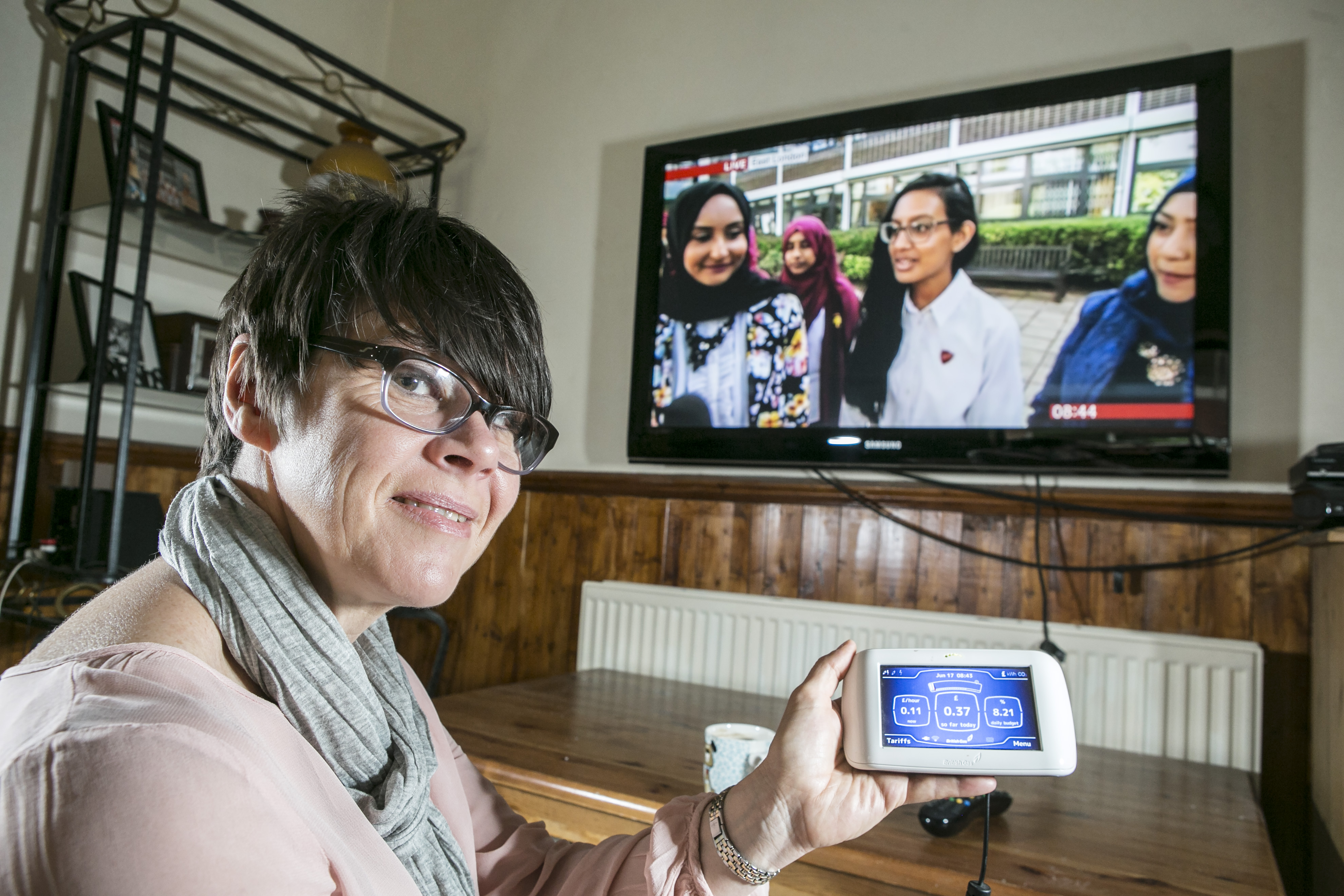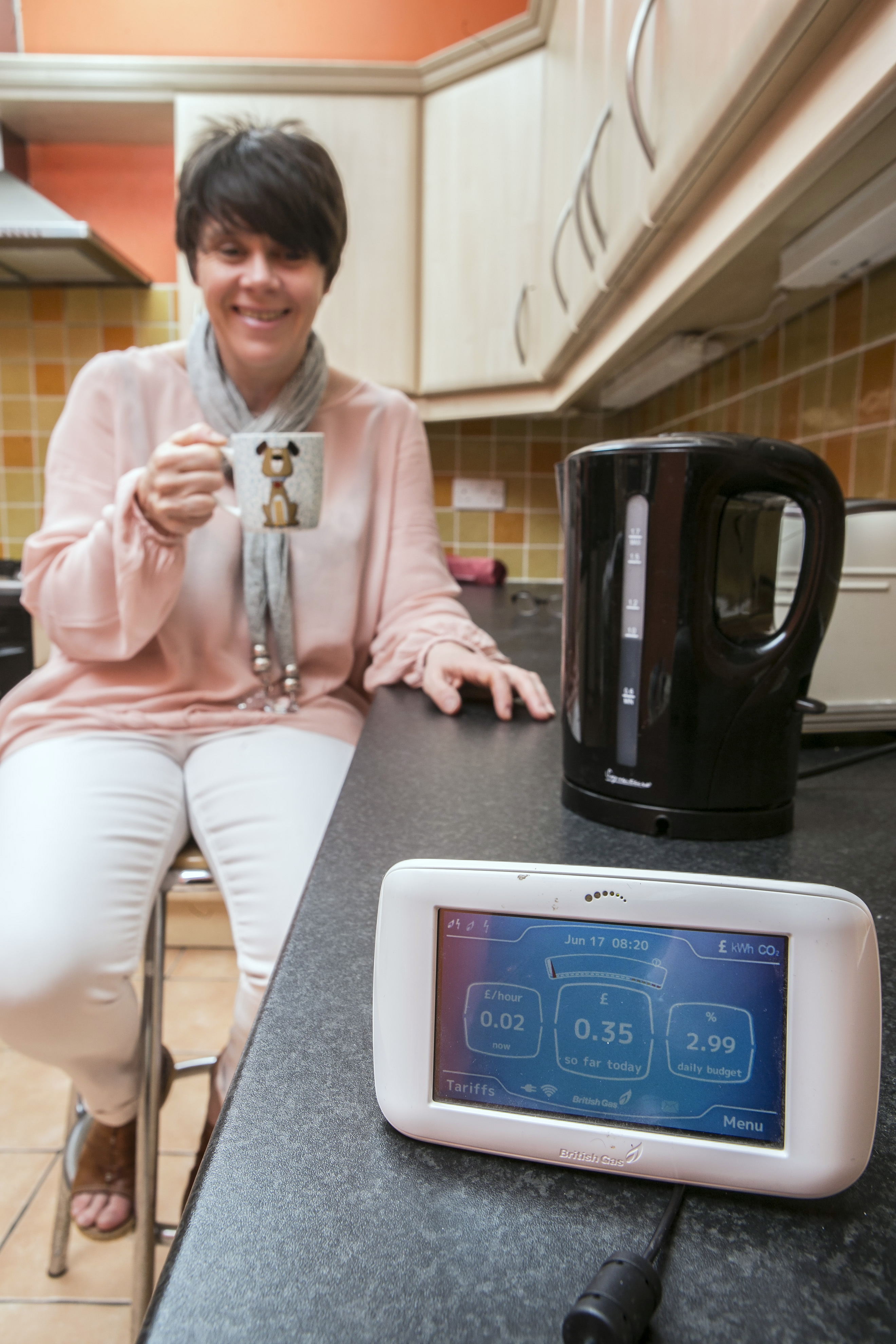Millions of smart meters are being installed across Europe
When Janet Thickpenny used to want a cup of coffee, she’d simply click the button to boil her kettle. Often she’d find herself absorbed in something else, while the water heated up. By the time she remembered her coffee, the water had cooled and she’d have to boil the kettle all over again.
She has stopped that kind of waste since she had a smart meter installed in her home in Barry, a coastal town in Wales. The smart meter with its in-home display now shows her the effect on her bill. It also lets her know how much she spends by keeping a closer eye on her usage. “You’d be surprised how much energy a kettle uses,” she says.
Tens of millions of smart meters are being installed across Europe. The British government has ordered a smart meter in every home by the end of 2020. The UK roll-out will mean about 53 million new electricity and gas meters, with an estimated investment of GBP 10 billion. Smart meters in Britain measure how much electricity or gas you use in real time, which in turn encourages you to use less. That helps consumers who want to reduce their energy consumption and potentially cuts carbon emissions too.
Smart money
Smart meters are also the subject of the biggest loan the European Investment Bank signed under the European Fund for Strategic Investments (EFSI) last year. With the backing of EFSI, the European Investment Bank will loan about EUR 500 million to a EUR 1.4 billion smart meters project managed by Calvin Capital, a British company that finances and manages the installation of new meters on behalf of energy suppliers. Overall EFSI aims to generate EUR 315 billion in new investment in the EU by 2018 with initial money from the EIB and the European Commission.
As part of the Investment Plan for Europe, one of EFSI’s aims is for the EIB to fund innovative projects—to demonstrate the Bank’s level of comfort with the risks and thus to encourage private investors to join in. In the case of the smart meters loan, the EIB had to take into account a familiar factor in the British energy market that nonetheless presented a challenge in pricing the deal.
When a British utility installs a smart meter, the consumer is essentially under no obligation to keep an account with that utility for the long term. Any time after a new smart meter is installed, the customer may decide to move to another energy supplier and the utility might find it difficult to recover the cost of its investment in the meter.
Calvin Capital is accustomed to handling customer “churn,” as this phenomenon is known. After all, Calvin has financed the purchase and installation of over six million meters—including more than one million smart meters—since 2002. This single EFSI deal covers a further seven million smart meters.
The model the company chose in the EIB deal takes the impact of churn away from the energy supplier. Instead of the utility company owning the meter and consequently having to deal with customers switching, Calvin owns the meter. With the EIB’s support, the Manchester-based company provides a solution that works regardless of the supplier the consumer choses.

The economics stack up
The EIB made this loan under EFSI to demonstrate support for the model Calvin’s using. That support is intended to draw other investors into the sector and contribute to the modernisation of energy industry infrastructure.
Under EFSI, the EIB was also able to increase the size of its loan beyond the maximum amount it would have been allowed to lend as part of regular operations.
“It’s a big deal, but in the end our presence can make the market comfortable with the risks and ensures the economics of the project stack up,” says Peter Jacobs, head of the EIB’s project finance division.
The British government believes smart metering will bring major benefits to consumers and to electricity or gas suppliers:
- Consumers will receive more accurate bills and will be able to track of their usage, helping them to reduce their consumption
- Suppliers won’t have to send out staff to read meters, saving on operational costs, and consumers won’t need to make an appointment and stay at home for the reading
- Call centres will be less busy with consumers challenging their bills, as ongoing usage will be readily available through the in-home display and bills will always be accurate at the end of the month
Template set

Janet Thickpenny’s smart meter certainly encouraged her daughters to be more aware of their energy usage. “It beeps to warn us if we’re using more energy than normal,” she says. “That sends my youngest daughter scurrying around the house unplugging things.”
There’s a lot of work—and investment—still to be done to complete the British government’s smart meter rollout. But that’s part of EFSI’s role too—to help build momentum for new directions in strategic economic sectors.
And it’s on course. Now that the EIB has made this loan to Calvin and signed other contracts to finance the installation of smart meters across the European Union last year, the bank’s Peter Jacobs says he has been contacted by a number of other UK companies to do similar deals.
“The template is set,” he says. “Any party that wants to roll out this kind of model knows they’ve got EIB support. Everyone wants to work with us.”
